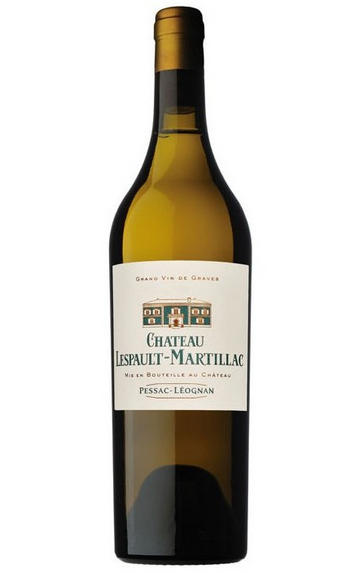
2022 Château Lespault-Martillac Blanc, Pessac-Léognan, Bordeaux
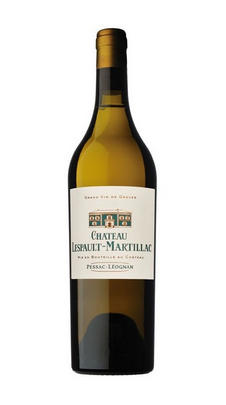
Critics reviews
The 2022 Lespault-Martillac Blanc is rich, layered and wonderfully expressive. Tangerine oil, lemon confit, marzipan, mint and a kiss of French oak are nicely amplified. Generous and creamy, the Blanc is an absolute delight in this tasting.
Drink 2025 - 2032
Antonio Galloni, Vinous.com (April 2023)
The salt and lime character is really pretty, with brightness and freshness. Full-bodied with sizzling acidity and flavour intensity. Key lime pie, too.
James Suckling, JamesSuckling.com (April 2023)
About this WINE
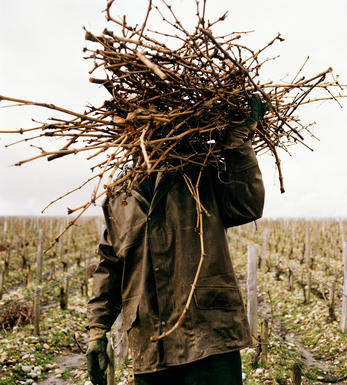
Ch. Lespault Martillac
Organic methods are used to prepare the soil and fight off any pests in the vineyard. Although small in size and only producing a low yield, the grapes from the vineyard are of very high quality due to the care and attention they receive.
The red grape varieties in the vineyard comprise 60% Merlot, 22% Cabernet Sauvignon, 13% Petit Verdot and 5% Malbec. The white grape varieties consist of 80% Sauvignon Blanc and 20% Sémillon.
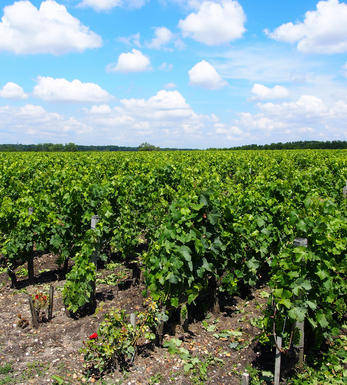
Pessac-Leognan
In 1986 a new communal district was created within Graves, in Bordeaux, based on the districts of Pessac and Léognan, the first of which lies within the suburbs of the city. Essentially this came about through pressure from Pessac-Léognan vignerons, who wished to disassociate themselves from growers with predominately sandy soils further south in Graves.
Pessac-Léognan has the best soils of the region, very similar to those of the Médoc, although the depth of gravel is more variable, and contains all the classed growths of the region. Some of its great names, including Ch. Haut-Brion, even sit serenely and resolutely in Bordeaux's southern urban sprawl.
The climate is milder than to the north of the city and the harvest can occur up to two weeks earlier. This gives the best wines a heady, rich and almost savoury character, laced with notes of tobacco, spice and leather. Further south, the soil is sandier with more clay, and the wines are lighter, fruity and suitable for earlier drinking.
Recommended Châteaux: Ch. Haut-Brion, Ch. la Mission Haut-Brion, Ch. Pape Clément, Ch Haut-Bailly, Domaine de Chevalier, Ch. Larrivet-Haut-Brion, Ch. Carmes Haut-Brion, Ch. La Garde, Villa Bel-Air.
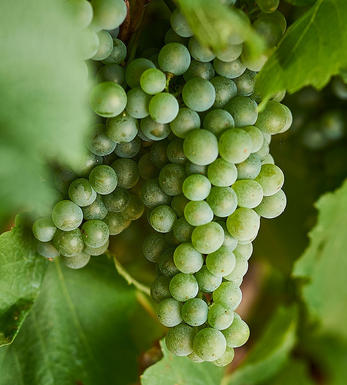
Sauvignon Blanc & Sémillon
The blend used for White Graves and Sauternes and rarely encountered outside France. In the great dry whites of Graves, Sauvignon Blanc tends to predominate in the blend, although properties such as Smith Haut Lafite use 100% Sauvignon Blanc while others such as Laville Haut Brion have as much as 60% Sémillon in their final blends. Sauvignon Blanc wines can lose their freshness and fruit after a couple of years in bottle - if blended with Sémillon, then the latter bolsters the wine when the initial fruit from the Sauvignon fades. Ultimately Sauvignon Blanc gives the wine its aroma and raciness while Sémillon gives it backbone and longevity.
In Sauternes, Sémillon is dominant, with Sauvignon Blanc playing a supporting role - it is generally harvested about 10 days before Sémillon and the botrytis concentrates its sweetness and dampens Sauvignon Blanc`s naturally pungent aroma. It contributes acidity, zip and freshness to Sauternes and is an important component of the blend.


Buying options
Add to wishlist
Description
The 2022 Lespault-Martillac Blanc is rich, layered and wonderfully expressive. Tangerine oil, lemon confit, marzipan, mint and a kiss of French oak are nicely amplified. Generous and creamy, the Blanc is an absolute delight in this tasting.
Drink 2025 - 2032
Antonio Galloni, Vinous.com (April 2023)
wine at a glance
Delivery and quality guarantee